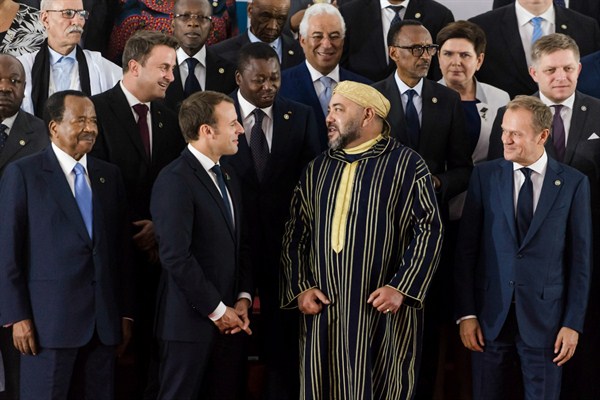Last April, the International Organization for Migration released a report documenting “shocking events on North African migrant routes.” Interviews with West Africans trying to reach Europe revealed that migrants were being kidnapped, beaten, raped and “sold as slaves” in public squares and garages in Libya. A spokesman for the agency went so far as to describe Libya as a “torture archipelago.”
The findings generated a fair amount of news coverage, but before long they were folded into the broader story about the dangers of trying to cross the Mediterranean Sea—a story that has been on the world’s radar for several years and by now has limited shock value.
That changed this month, however, when CNN published footage of a slave auction in Libya in which a man sells two “big strong boys for farm work” for $800. The report unleashed a torrent of condemnations and calls for justice from both sides of the Mediterranean and beyond.

